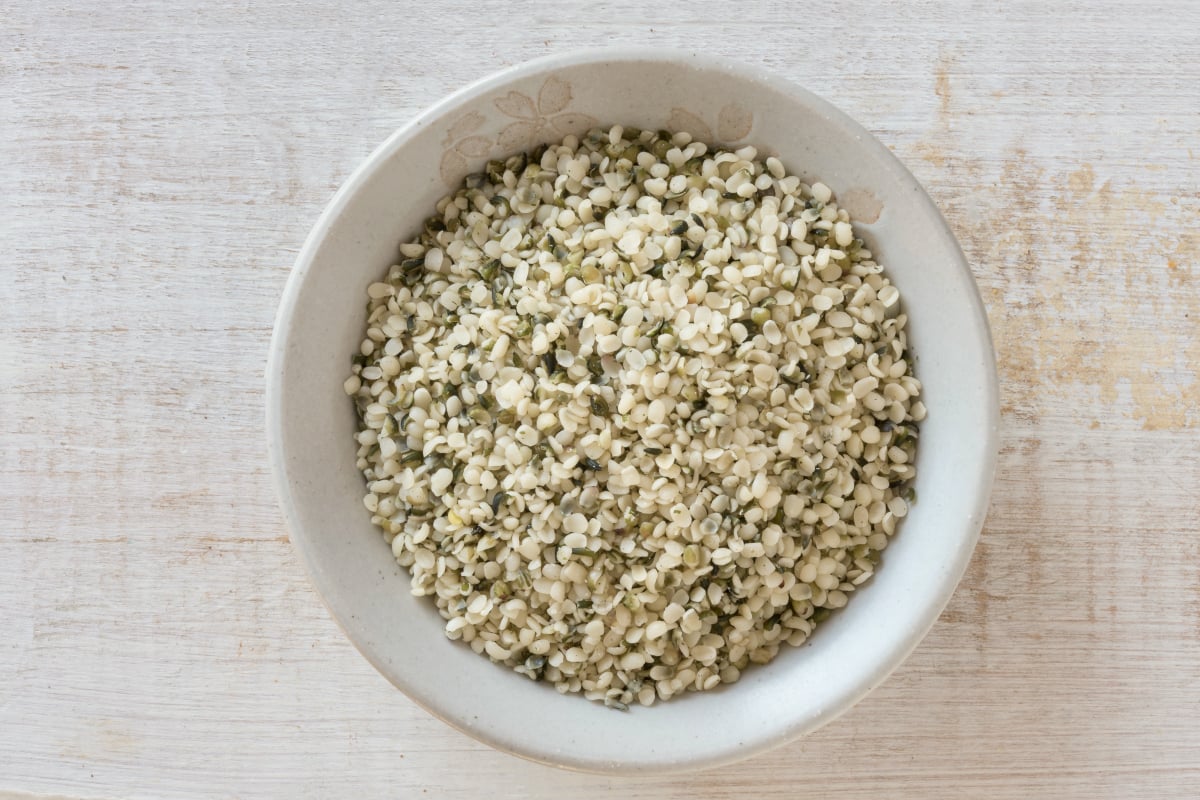
Hemp seeds are one of those “super foods” we hear about all the time – like chia seeds, spirulina, acai, etc.
But what makes hemp seeds interesting is that they actually used to be illegal in Australia. Yep, they were only permitted for human consumption in November 2017.
So given the super-nutritious food is relatively new here, we had lots of questions.
Lucky for us, Be Fit Foods co-founder and accredited practising dietitian Kate Save has shared all there is to know about this interesting food.
Kate says hemp seeds have a mild and nutty flavour. They’re technically not seeds but nuts, as they contain over 30% oil and approximately 25% protein.
“They contain all of the nine essential amino acids, are rich in trace minerals and high in dietary fibre.
“Hemp seeds are made up of over 80% Poly Unsaturated Fatty Acids. They are rich in omega-3 and omega-6 fatty acids, particularly the essential linoleic acid and alpha-linolenic acid.”
Hemp seeds are also considered a complete protein source – and contain almost as much protein as soybeans! More than 25% of the total calories from hemp seeds are from high-quality protein.
“They are rich in vitamins and minerals, containing Vitamin E, potassium, phosphorus, magnesium, calcium, zinc and iron,” Kate says.
They don’t call it superfood for nothing!
But what makes hemp seeds interesting is that they actually used to be illegal in Australia. Yep, they were only permitted for human consumption in November 2017.
So given the super-nutritious food is relatively new here, we had lots of questions.
Lucky for us, Be Fit Foods co-founder and accredited practising dietitian Kate Save has shared all there is to know about this interesting food.
What are hemp seeds?
Yes, you probably guessed – Hemp seeds are seeds from Cannabis sativa, commonly known as the hemp plant.Kate says hemp seeds have a mild and nutty flavour. They’re technically not seeds but nuts, as they contain over 30% oil and approximately 25% protein.
What is the nutritional value of hemp seeds?
According to Kate, hemp seeds have excellent nutritional value.“They contain all of the nine essential amino acids, are rich in trace minerals and high in dietary fibre.
“Hemp seeds are made up of over 80% Poly Unsaturated Fatty Acids. They are rich in omega-3 and omega-6 fatty acids, particularly the essential linoleic acid and alpha-linolenic acid.”
Hemp seeds are also considered a complete protein source – and contain almost as much protein as soybeans! More than 25% of the total calories from hemp seeds are from high-quality protein.
“They are rich in vitamins and minerals, containing Vitamin E, potassium, phosphorus, magnesium, calcium, zinc and iron,” Kate says.
They don’t call it superfood for nothing!
What are the health benefits of hemp seeds?
Besides the above nutritional benefits, hemp seeds contain high levels of amino acid arginine, “which has been linked to a decrease in inflammation, and therefore may reduce the risk of heart disease,”Don't forget to opt-in to Our Healthy Living Society and get 3 free gifts while receiving the latest information on health, well-being and groundbreaking news about natural nutrition.

No comments:
Post a Comment